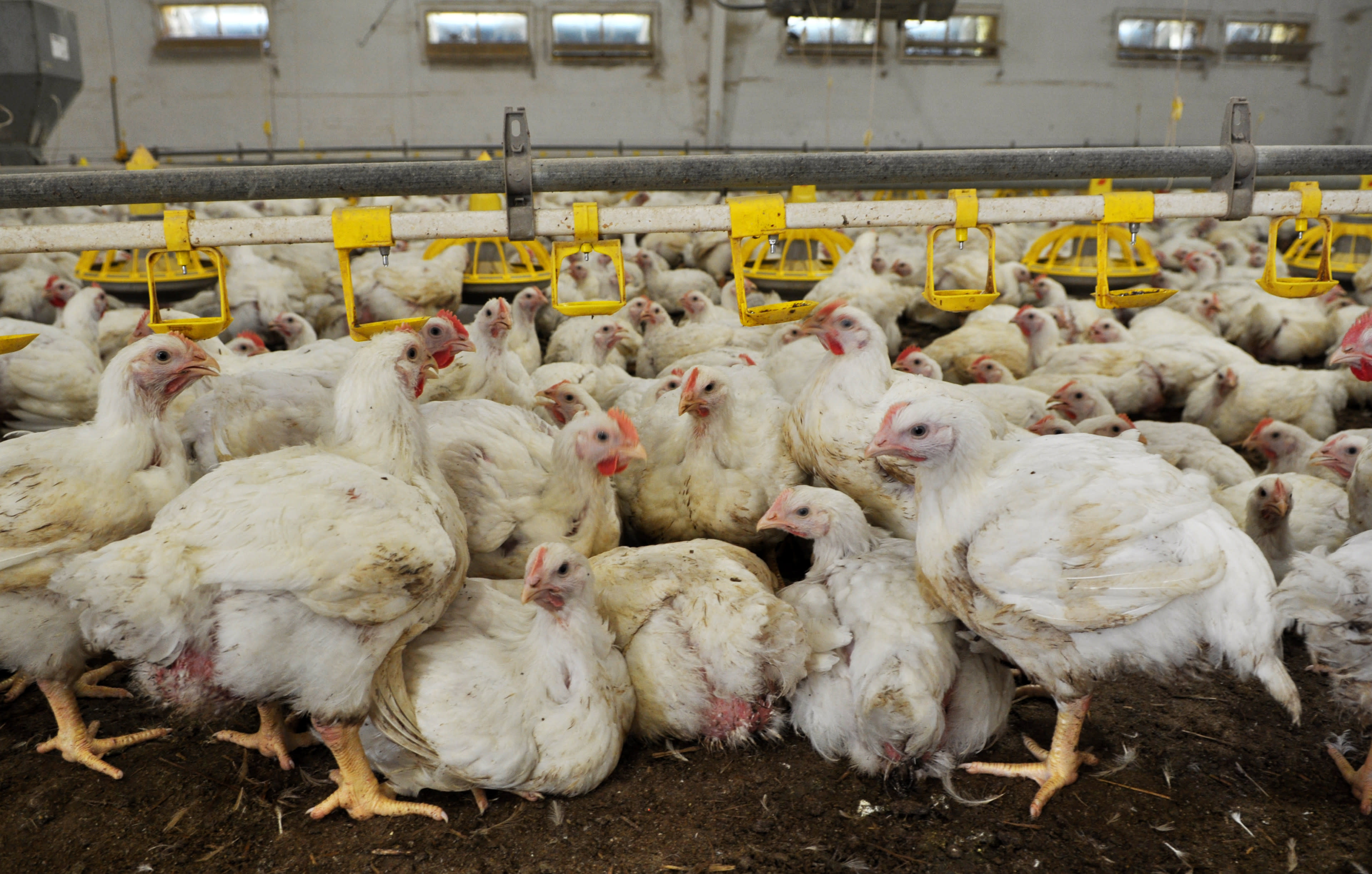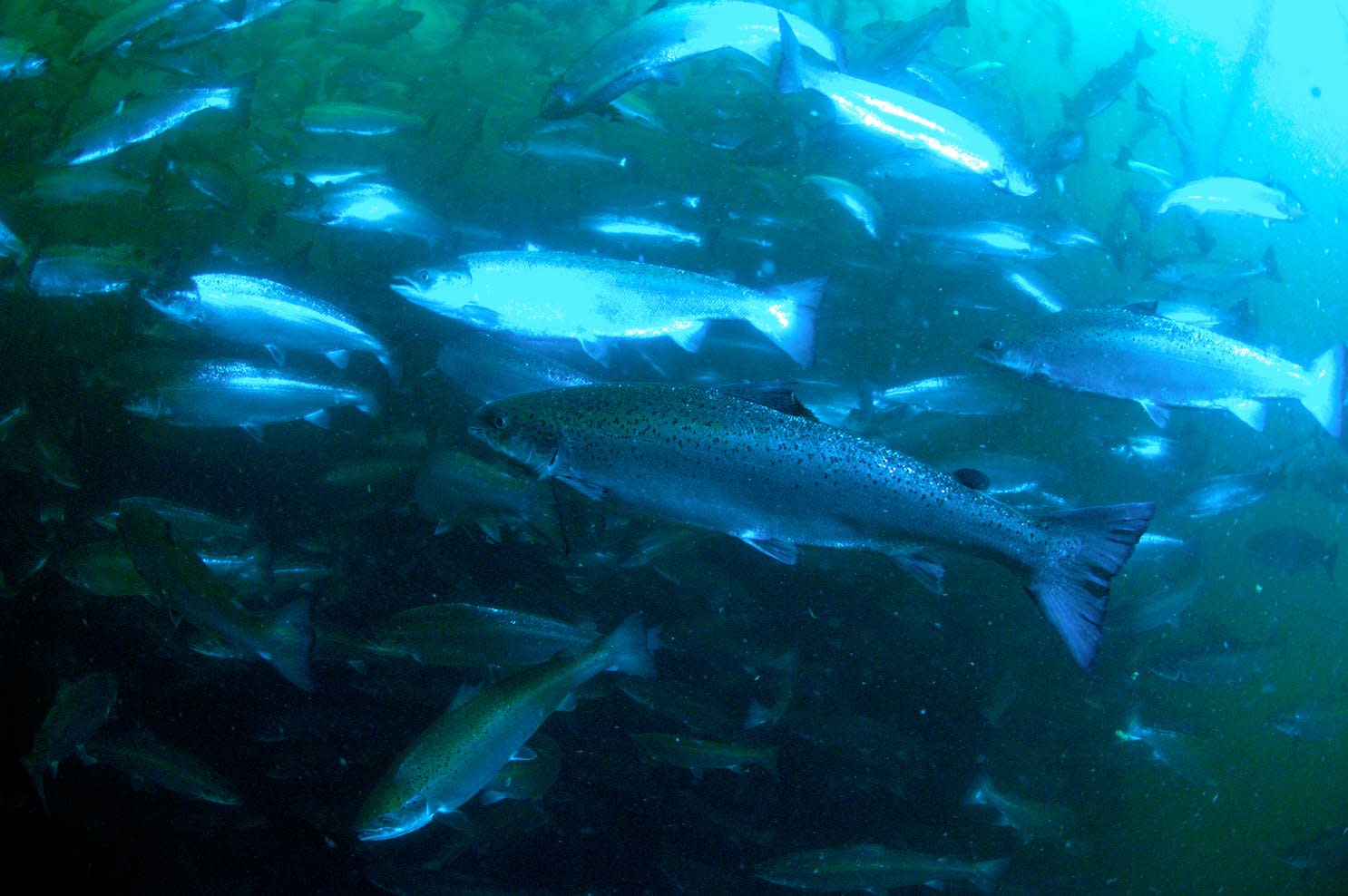




Humans have been farming sheep for 11,000 years. But what is life like for a farmed sheep?

Just under 32 million sheep are farmed in the UK, and they are a common sight in the countryside. But what are sheep being farmed for? And is there a hidden side to the idyllic scene of sheep grazing on a grassy hillside?
##Are sheep factory farmed in the UK?
The vast majority of sheep in the UK are farmed outdoors either in fields or in remote areas of hills and uplands. They usually have little or no shelter from the elements.
Large numbers of lambs are moved indoors for intensive ‘fattening’. For example, hill-bred sheep may be rounded up and transported to market where they are sold on to farms to be ‘finished’ in slatted or straw-bedded sheds which are often overcrowded. Farmers will go as far as shearing the lambs so they can “get more into the shed”, with industry guidelines stating that these lambs can be stocked at 1 per 0.7m2, which is only slightly more space than the size of the lamb’s body.
Lambs may be kept in sheds for up to 10-12 weeks before being killed. The conditions of indoor finishing cause welfare issues including lameness caused by the build up of dung and straw around lambs’ feet.
Outdoor sheep farming can also take more intensive forms, where sheep are moved every few days between small strips of pasture which may be crowded, and where supplementary feed is given to maximise how fast the lambs reach slaughter-weight.
Like other species, sheep have also been intensively bred for maximum commercial benefit, with little regard for welfare. Mother sheep have been bred to sometimes give birth to too many young, who are small and weak. 15% of newborn lambs do not survive in the UK.
What are sheep farmed for?
Globally, sheep are farmed for meat, skin, milk and wool. In the UK, sheep are mainly farmed for the production of meat (lamb and mutton). The wool market in the UK, which was once an important part of the industry, is no longer economically viable. Farmers often get less money for the wool than it costs to shear the sheep.
Are sheep farmed for dairy?
In some parts of the world large numbers of sheep are farmed for dairy products. In the UK, the sheep dairy industry is extremely small, made up of perhaps 35-50 farms. Sheep farmed for dairy are different breeds to those farmed for meat and other products.
Is being farmed for wool bad for sheep?
Modern sheep breeds have been selected over many centuries to produce so much wool that annual shearing is essential. When sheep are not shorn, it can have very bad implications for their welfare, either from overheating or from parasites living in the wool.
In some countries, sheep undergo painful mutilations specifically for the production of wool. In Australia and New Zealand, the practice of ‘mulesing’ without pain-relief is well documented and involves slicing large chunks of flesh away from the rear-end of the sheep to prevent the fleece from growing so densely that flies and maggot infestations can be a problem.
Sheep, whether raised for wool or other products, endure painful mutilation. Male sheep are castrated without pain relief, and the vast majority of lambs have their tails docked with a hot blade, knife or the use of extremely tight ties which restrict blood flow causing the tail to die, rot and fall off. No pain relief is given for these procedures.
Does being sheared hurt sheep?
Because sheep are prey animals and live most of their lives without direct contact with humans, the handling and restraint associated with shearing can be extremely stressful. However, well-trained shearers can shear a sheep in just a matter of minutes.
Shearing in itself is not painful, because it is only cutting the sheep’s fur, however it is not uncommon for sheep to sustain grazes, cuts and burns from the clippers because of the speed at which shearers will do their work. Sheep may also sustain bruises or strains from handling.
At what age are lambs slaughtered in the UK?
Lambs in the UK are slaughtered at between 10 weeks and 6 months of age. Some hill-breeds which grow more slowly are reared to 18 months.
What is the problem with sheep farming?
Although many sheep live generally better lives than intensively farmed animals like chickens and pigs, there are still some very serious welfare issues that impact them.
The UK industry is increasingly shifting to earlier and earlier lambing. Not only have sheep been selected to have too many young, but this earlier lambing means lambs are often born during the coldest times of the year, resulting in high mortality rates caused by exposure to cold conditions and starvation.
In the first days and weeks of a lamb’s life, they will experience painful mutilations in the form of castration and tail-docking and are not given any pain relief.
Because sheep are quite hardy animals, they are often not provided with any shelter. While sheep can cope quite well for much of the year without shelter, it does mean that during extreme weather, such as winter storms, cold snaps or heat waves, their welfare can suffer immensely. Mother sheep, known as Ewes, die in large numbers during the winter months because their bodies do not have the reserves to survive the cold.
Sheep are moved between farms more than most other farm animals, and many are sent to markets which can be highly stressful environments. Transport conditions can be poor, overcrowded, long, and can be made worse by poor weather conditions.
What happens when sheep are slaughtered?
Most sheep in the UK are killed in slaughterhouses where the animals are stunned before slaughter. However, conditions inside a slaughterhouse are extremely stressful for sheep. The systems usually require sheep to be moved in single-file lines which goes against the strong instincts of sheep to move in large groups when they feel threatened. As prey animals, sheep are extremely sensitive to the unfamiliar smells, loud noises and alien environment of a slaughterhouse. The stressful environment is made even worse by the fact that sheep will arrive in an already stressed state following transport in over-crowded trucks which themselves potentially follow many hours spent in the stressful environment of a market.
What can I do?
Sheep are amazing animals, worthy of our respect and kindness. Learn more amazing facts about sheep here, it might just inspire you to switch to leave sheep off your plate!

 Pru Elliott
Pru Elliott





